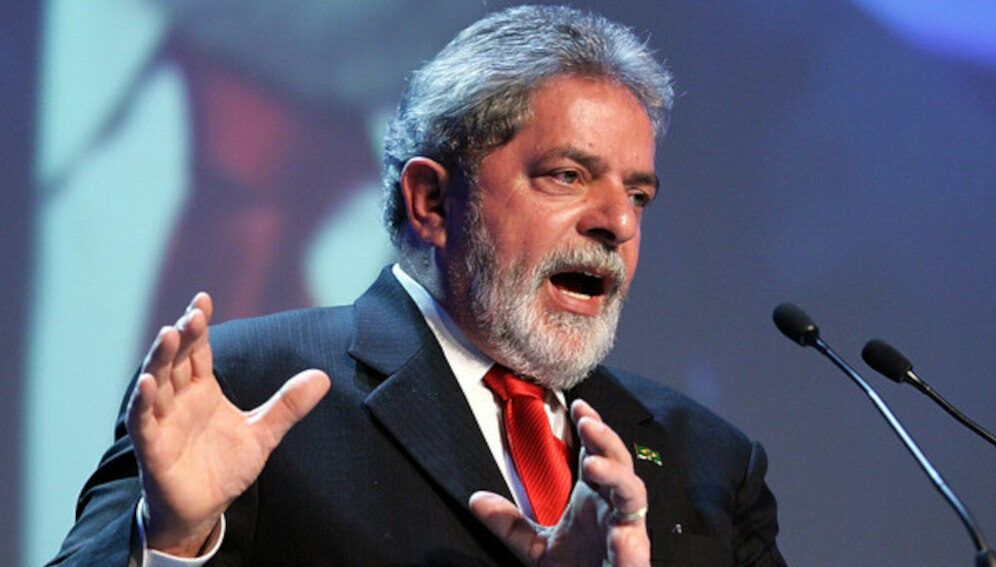08/11/22
Brazil’s Lula vows to prioritise climate, science amid crisis

Send to a friend
The details you provide on this page will not be used to send unsolicited email, and will not be sold to a 3rd party. See privacy policy.
[RIO DE JANEIRO] Luiz Inácio Lula da Silva pledged to protect the Amazon rainforest and overhaul Brazil’s environmental policy as he was elected president for the third time on 30 October.
But reviving science, technology and innovation and addressing environmental crises will be no small undertaking, after several years of recurrent budget cuts in education and science under outgoing president Jair Bolsonaro.
Lula’s manifesto promises to end deforestation in the Amazon, stem greenhouse gas emissions, support low-carbon agriculture and family farming, rebuild deforestation inspection and control agencies, and end illegal mining on indigenous lands.
“An economic strategy that includes the promotion of science and the sustainable exploitation of natural resources will be important.”
Luiz Antônio Elias, former executive secretary in the Ministry of Science, Technology and Innovation, Brazil
“Brazil is ready to retake its leadership in the fight against the climate crisis,” Lula told supporters in Sao Paulo following his election win. “Brazil and the planet need a living Amazon.”
Environmental policy was a major casualty of the Bolsonaro government, instated in January 2019.
From 2019 to 2022, deforestation in the Brazilian Amazon grew by 56 per cent compared with the period 2016 to 2018, according to an article by Paulo Artaxo, professor of environmental physics at the University of Sao Paulo.
There was also an 80 per cent increase in deforestation in protected areas, such as indigenous lands and conservation areas. In addition, there has been a record escalation of fires.
Science more broadly also suffered a major blow under Bolsonaro. In 2014 the National Fund for Scientific and Technological Development had a budget of around 4.6 billion Brazilian reals (US$900 million), while in 2022 these resources will drop to US$480 million under his government’s budget. And more than half of this amount has been earmarked for public debt payment because, according to Bolsonaro’s administration the resources for science were not being used.
In addition, a provisional measure issued by Bolsonaro in August imposes limits on the use of part of the Fund’s resources, a move that was previously prohibited by law.
“These were years of intense deterioration of investment in science and technology, and Lula’s victory brings the prospect of recovery,” Renato Janine, president of the Brazilian Society for the Advancement of Science (SBPC), tells SciDev.Net.
“However, as [Bolsonaro] enacted several legal mechanisms using the presidential veto (i.e, with no possibility of amendment by the legislature), it will be necessary to repeal these laws and provisional measures.”
Funding and investment in federal universities and research institutes has also fallen by 56 per cent since the end of Dilma Rousseff’s presidency, from 10.3 billion Brazilian reals (about US$2 billion) to about US$900 million, official figures show.
The budgets of Brazil’s main research promotion agencies — the National Council for Scientific and Technological Development and the Coordination for the Improvement of Higher Education Personnel — also fell by 65 per cent in this period, impacting the availability of scholarships for master’s and doctoral students.
Biomedical scientist Helena Nader, president of the Brazilian Academy of Sciences, says supported research positions are crucial for science advancement.
“More than 90 per cent of Brazilian science is done at universities and public research institutes,” she told SciDev.Net. “Without education there is no science, and the new government will have to take this into account.”
Janine says that Lula’s administration will have to make tough decisions, as he inherits an economic crisis. The president-elect, who will be inaugurated on 1 January 2023, has already said his priority will be to end the hunger that plagues 33 million people, equivalent to more than 15 per cent of the population.
“There is an expectation of quick solutions, but unfortunately we cannot expect them to be so quick,” the SBPC president said.
Nader agrees: “The damage is too great. We will need at least one or two years to get organised.”
Economist Luiz Antônio Elias, former executive secretary of the Ministry of Science, Technology and Innovation in the previous Lula and Rousseff governments, believes that rebuilding the national science, technology and innovation system “with an integrated vision of science policy” will be crucial.
Lula’s “programme for the reconstruction and transformation of Brazil” recognises that rebuilding the system will be “for technological and social innovation, as well as for the sustainable use of the country’s wealth, the generation of skilled jobs and the fight against climate change and threats to public health”.
“An economic strategy that includes the promotion of science and the sustainable exploitation of natural resources will be important,” Elias adds.
For Janine, bringing science closer to society will be key. “We need to show people how important science is for the development of the country, and how it is present in their food, clothes and mobile phones,” he said.
In his first speech as president-elect, Lula promised the reinstatement of national conferences, including one on science and technology, to facilitate social participation in science policy planning.
















